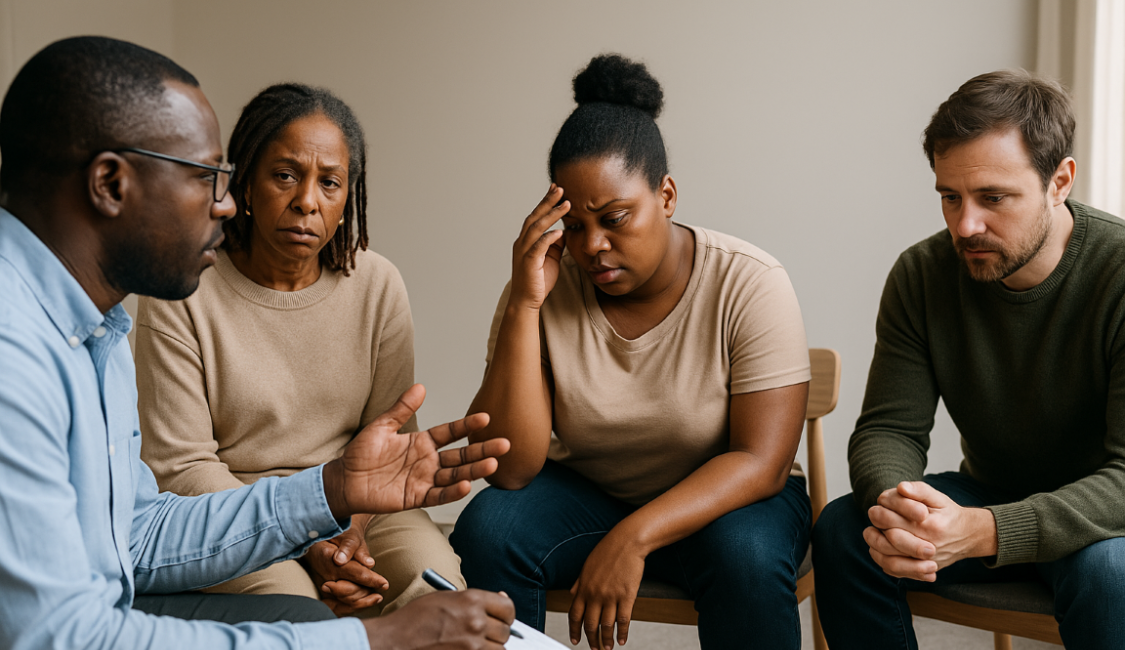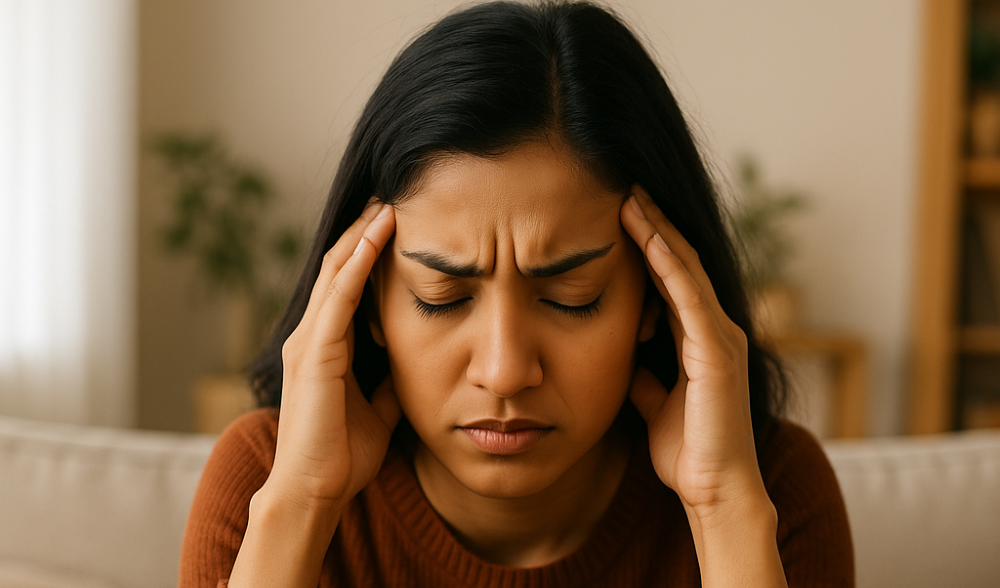
Let’s for once talk about something super important but often swept under the rug in Nigeria—mental health. For too long, mental health issues have been stigmatized, leaving many people feeling isolated or ashamed to seek help. However, mental health is just as vital as physical health. After all, your mind is the engine that keeps you going! In Nigeria, cultural beliefs, myths, and lack of awareness often make it tough to address mental health openly. But it’s time to break mental health stigma in Nigeria because things are changing, and so should you.
According to the World Health Organization, about 1 in 4 people globally will experience a mental health condition at some point in their lives (WHO Mental Health). In Nigeria, the numbers are similar, with an estimated 20-30% of the population facing mental health challenges like anxiety or depression, per a 2020 study by the Nigerian Institute of Medical Research (NIMR). Yet, stigma keeps many from seeking help. So, let’s dive in and break down the barriers together!
Break Mental Health Stigma in Nigeria: Busting Common Myths
In order to successfully break mental health stigma in Nigeria, let’s tackle the myths that fuel stigma. In Nigeria, cultural beliefs often shape how we view mental health. For instance, some folks believe mental illness is a spiritual attack or a sign of weakness. Spoiler alert: it’s neither! Mental health conditions are medical issues, just like diabetes or malaria. Read also: Diabetes Mellitus and Home Remedies For Malaria
Dr. Taiwo Sheikh, a leading Nigerian psychiatrist, puts it perfectly: “Mental illness is not a curse or a personal failing. It’s a health condition that responds to treatment, just like any other disease” (The Guardian Nigeria). Yet, myths persist. Some think only “mad” people need help, or that prayer alone can “cure” mental health issues. While spirituality can provide comfort, professional care is often necessary.
Moreover, a 2021 WHO report highlights that misconceptions about mental health in low-resource settings like Nigeria contribute to a treatment gap of over 70% (WHO Mental Health Gap). Consequently, debunking these myths is the first step to encouraging people to seek help without shame.
Break Mental Health Stigma in Nigeria: Africa and World Stereotypes
In many African societies, mental health issues are often linked to supernatural forces. In Nigeria, depression or anxiety might be seen as the result of “juju” or spiritual curses. A 2021 study in The Lancet revealed that in rural Ghana, mental illness is believed to be divine punishment—leading families to seek spiritual healers instead of medical professionals. Dr. Oye Gureje, a Nigerian psychiatrist, explains: “The cultural lens in Africa often frames mental health as a moral failing or spiritual attack, not a medical condition.”
To truly break mental health stigma in Nigeria, these deep-rooted cultural beliefs must be challenged through education, awareness, and open conversations. Globally, mental health myths persist—Western societies often dismiss it as melodrama or weakness, while in Asia, the need to protect family honor forces many to suffer in silence. Gender stereotypes add to the burden: men are told to “man up,” hiding fear or sadness, while women are dismissed as “emotional” or “unstable.” Whether in Lagos or London, these cultural scripts fuel silence, shame, and suffering.
Break Mental Health Stigma in Nigeria: Global & Local Research Reality
Global Findings
According to the Lancet Commission on Global Mental Health and Sustainable Development:
- Mental illness will cost the global economy $16 trillion by 2030 in lost productivity.
- Depression is already the leading cause of disability worldwide.
[Read more: www.thelancet.com
Nigeria-Specific Data
A 2020 report by the Nigerian Federal Ministry of Health and WHO revealed:
- 80% of mentally ill Nigerians do not have access to care.
- Suicide rates are rising, especially among youth aged 18–35.
- Mental health receives less than 4% of the national health budget.
WHO Mental Health Atlas 2020 – www.who.int.
These numbers tell us what many Nigerians already know: services are both inaccessible and misunderstood making it the more difficult to Break Mental Health Stigma in Nigeria.
Break Mental Health Stigma in Nigeria: Why Stigma Persists
Let’s start with the truth: mental illness is not a moral failure, yet many Nigerians view it as a curse, punishment, or weakness.
According to the World Health Organization, over 20% of Nigerians suffer from a mental illness, yet only about 1 in 5 people receive adequate care. Most never speak up. Why?
- Cultural and religious beliefs: Many still attribute mental illness to witchcraft or spiritual forces.
- Lack of awareness: Basic knowledge about mental health is low, especially in rural communities.
- Social judgment: Fear of being mocked or ostracized stops people from seeking help.
- Healthcare access: Nigeria has less than 300 psychiatrists for a population of over 200 million. WHO Nigeria
Clearly, there’s a problem. But thankfully, there’s also growing momentum for change- to break mental health stigma in Nigeria.
Break Mental Health Stigma in Nigeria: Signs You Need Support
So, how do you know if you or someone you love needs help? Mental health issues show up in different ways. For example, you might feel constantly anxious, lose interest in things you once enjoyed, or struggle with overwhelming sadness. Other signs include trouble sleeping, irritability, or even physical symptoms like headaches or fatigue.
In Nigeria, stress from economic pressures, family expectations, or social challenges can amplify these symptoms. A 2022 study by the Lagos University Teaching Hospital found that 1 in 5 Lagosians reported symptoms of anxiety or depression (LUTH Research). Therefore, paying attention to these signs is crucial. If you’re feeling “off” for weeks or months, it’s time to act by Setting Smart Health Goals and help break mental health stigma in Nigeria.
Break Mental Health Stigma in Nigeria: Where to Find Help in Nigeria
Now, let’s get practical. Where can you find help in Nigeria? Thankfully, resources are growing, even if they’re not yet widespread. For starters, you can reach out to mental health hotlines like the Nigeria Suicide Prevention Initiative at 08062106493. Additionally, organizations like Mentally Aware Nigeria Initiative (MANI) offer support groups and online resources (Mentally Aware Nigeria).
Hospitals like the Federal Neuropsychiatric Hospital in Yaba or Aro in Abeokuta provide professional care. If you’re in a rural area, community health centers may offer basic mental health services. Furthermore, online platforms like BetterHelp or local telehealth services are making therapy more accessible.
However, access remains a challenge in the quest to break mental health stigma in Nigeria, as there are fewer than 0.15 psychiatrists per 100,000 people (WHO Mental Health Atlas). As a result, community-based initiatives and NGOs are stepping up to fill the gap.
Break Mental Health Stigma in Nigeria: How to Start Conversations
Talking about mental health can feel awkward, especially with family or friends who might not get it. But opening up is a game-changer. Start small—maybe share how you’ve been feeling with someone you trust. For example, say, “I’ve been feeling really overwhelmed lately, can we talk?” This invites understanding without judgment.
Additionally, educate your loved ones. Share facts, like how common mental health issues are. A 2023 survey by the African Polling Institute found that 60% of Nigerians are open to learning about mental health if approached with empathy (African Polling Institute). So, be patient but persistent.
If you’re supporting someone else, listen without trying to “fix” them. Ask, “How can I help?” instead of saying, “Just snap out of it.” This approach builds trust, encourages openness and most importantly, gets us closer to the goal- to break mental health stigma in Nigeria.
Break Mental Health Stigma in Nigeria: Balancing Traditional and Modern Healing Approaches
In Nigeria, traditional healing plays a big role in mental health care. Many turn to spiritual leaders or herbalists for help, which can be comforting. However, combining traditional and modern approaches requires care. For instance, prayer or cultural rituals can provide emotional support, but they shouldn’t replace professional treatment for conditions like schizophrenia or severe depression.
A 2020 study by the University of Ibadan found that 40% of Nigerians with mental health issues first sought traditional healers before medical care (University of Ibadan Research). While some traditional practices offer community support, others may delay effective treatment. Therefore, it’s wise to consult professionals alongside any cultural practices.
Pathways to Change: From Stigma to Support
The good news? Change is not only possible—it’s already happening. Here are six steps we can take to shift mindsets and expand access to care.
Education is Key to Break Mental Health Stigma in Nigeria

Education dismantles fear and builds empathy. In Africa, community-driven campaigns are critical. Programs like StrongMinds Uganda, which trains laypeople to deliver group therapy, have reached over 100,000 people—proof that grassroots efforts work. Globally, mental health should be part of school curricula and workplace wellness programs. As global health expert Dr. Vikram Patel says: “We must normalize conversations about mental health just like we do for diabetes or hypertension.”
Break Mental Health Stigma in Nigeria: Bring Mental Health into Primary Care
Africa’s health systems are stretched, but integrating mental health into primary care is both affordable and effective. Rwanda has trained thousands of community health workers to identify and refer individuals with depression, shrinking the treatment gap. In the UK, the IAPT program offers a successful blueprint for delivering psychological support through primary care networks. Still, government funding is key: Africa spends less than $0.10 per person on mental health, while high-income countries spend over $50.
Break Mental Health Stigma in Nigeria: Use Technology to Widen Access
Digital tools are powerful allies in the fight for access. In Nigeria, Mentally Aware Nigeria offers free mental health support via social media and chat apps. In South Africa, teletherapy platforms connect people in remote areas with professionals. Globally, apps like Headspace and BetterHelp have increased access to mental health support—but affordability and cultural adaptation remain challenges. As Dr. Dixon Chibanda, creator of Zimbabwe’s Friendship Bench, puts it: “We need low-cost, high-impact solutions that scale without sacrificing care.”
Break Mental Health Stigma in Nigeria: Tell the Truth Through Real Stories
Ngozi, a 24-year-old student from Enugu, shared her experience:
“I was having panic attacks but thought I was under a spiritual attack. It wasn’t until I spoke to a friend who had gone to therapy that I realized I wasn’t alone.”
Now she volunteers with a campus-based mental health club, helping others speak up before it’s too late.
Break Mental Health Stigma in Nigeria: Public Policy and Protection Push are Vital
Policy matters. Only 15 African countries have mental health legislation. South Africa’s Mental Health Care Act (2002) offers a model for protecting rights and expanding access. Globally, parity laws that ensure equal insurance coverage for mental and physical health are essential. Advocacy organizations like She Writes Woman (Nigeria) are pushing for reform, but they need funding, media support, and political will to move the needle.
Engaging Community and Religious Leaders
In Africa, faith leaders have immense influence. Equipping pastors, imams, and traditional healers with mental health knowledge can be transformative. In Ghana, partnerships between churches and health workers are reducing stigma and encouraging treatment. Worldwide, community spaces—from churches to support groups—offer the belonging and connection that mental health recovery often requires.
Break Mental Health Stigma in Nigeria: What You Can Do Today
Whether you’re in Accra, Amsterdam, Nairobi, or New York, here’s how you can support mental wellness—starting now:
- Talk about it. Break the silence. Share your experiences or listen with empathy.
- Normalize therapy. Therapy isn’t for the “mad”—it’s for anyone navigating life.
- Rest without guilt. Burnout isn’t a badge of honor. Rest is health. Read also: Good Sleep For Mental Health
- Check on your people. Your “strong friend” might be struggling too.
Frequently Asked Questions
Can prayer alone cure mental illness?
Prayer can provide emotional comfort, but mental illnesses often require professional treatment like therapy or medication.
Is counseling expensive in Nigeria?
Costs vary, but NGOs like MANI offer free or low-cost services, and some hospitals provide affordable care.
How do I know if I’m depressed?
Look for persistent sadness, loss of interest, or changes in sleep/appetite lasting over two weeks. Consult a professional for a diagnosis.
Are mental health issues common in Nigeria?
Yes! WHO estimates 20-30% of Nigerians face mental health challenges at some point.
Where can I find a therapist in Nigeria?
Check hospitals like Yaba Neuropsychiatric or platforms like Mentally Aware Nigeria for referrals.
Can traditional healers treat mental illness?
They may offer support, but professional care is essential for serious conditions. Combine approaches wisely.
How do I support a friend with mental health issues?
Listen without judgment, encourage professional help, and check in regularly.
Are there mental health hotlines in Nigeria?
Yes, try the Nigeria Suicide Prevention Initiative at 08062106493 or MANI’s helplines.
Is mental illness a sign of weakness?
Not at all! It’s a medical condition, not a personal failing, and seeking help is a strength.
How can I promote mental health awareness?
Share resources, join campaigns like #MindYourMind, or start conversations in your community.
Final Thoughts
Mental health is not a luxury—it’s a lifeline. And in Nigeria, where resilience runs deep, it’s time we use that same energy to break the silence and build a nation where mental wellness is for all. If we can openly talk about malaria and diabetes, we can also talk about depression, anxiety, and bipolar disorder. Let’s stop the shame. Let’s start the healing.
Let’s know how you started a conversation around how you’re feeling, with a loved one or therapist in the comments, we’d love to share in what you did to break mental health stigma in Nigeria.
Subscribe to our newsletter for more health tips, share this post with others and join our free WhatsApp or Facebook support group. Explore more resources at HealthsClinic.com.
Your health is your wealth—prioritize it today!
This post is for educational purposes only; therefore, consult your doctor before making any medical decisions.
RELATED POSTS
View all



